Greenhouses are big business in Russia right now. With the road to self-sustainability the Kremlin has been walking in recent years, the acreage of vegetables under glass has seen a huge increase. At a greenhouse forum held in Moscow in June, experts said that around 1,800 hectares would still have to be constructed in order to meet the country’s demand for greenhouse vegetables. The figures appear to confirm this ambition, with Cuesta Roble Consulting having calculated that Russia is planning on building 1000 hectares, a 34% increase in greenhouse vegetable acreage. In April of this year, this increase had already led to more than 50% self-sufficiency. And according to the latest forecasts, greenhouse vegetable crops will reach a historical high: 1.1 million tons.
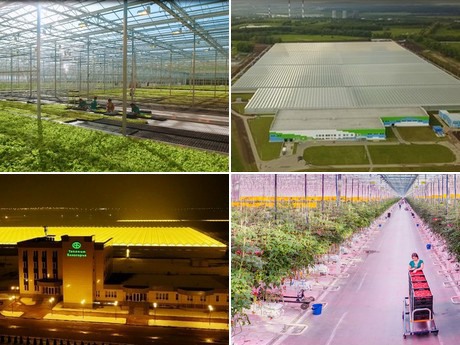
The Russian greenhouse boom has, naturally, opened up plenty of opportunities for suppliers. For instance, in March, Philips Lighting (now Signify) signed a partnership deal with a local specialist to supply lighting to the Russian market. Ellepot and Pindstrup also saw opportunities to conquer the Russian market together. And just this month, Grodan opened its first production facility in Russia. If you’re looking to get in on the action, you may want to consider joining the upcoming investment forum Greenhouse Complexes Russia.
It’s not just foreign companies that heed the call of the Russian bear though. Domestic suppliers also seize the opportunity. Examples are a Russian LED maker and a supplier of HID lamps. A laboratory in the Moscow region even supplies bumblebees to the local market.
So, there’s a lot going on in Russia right now, and there’s no end in sight to the rapid expansion of the greenhouse vegetable industry. Let’s take a look at projects that have made headlines during the year to date to illustrate just how much growth there is in Russia right now (hint: the projects listed below represent hundreds of hectares). One thing that’s obvious: the Russians don’t want to concentrate their greenhouses in one area, everyone gets a piece of the pie.
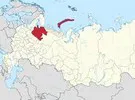 Arkhangelsk: 3 ha in production
Arkhangelsk: 3 ha in production
Elena Borovina’s greenhouse in Severodvinsk makes sure that even in the Arctic cold, locals can enjoy fresh lettuce, dill, parsley, basil, rucola, Swiss chard, spinach, sorrel, cilantro and chives. In addition, Elena grows tomatoes on 0.3 ha, while the majority of the acreage, 2.2 ha, is reserved for cucumbers.
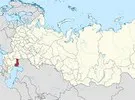 Astrakhan: 10 ha under construction
Astrakhan: 10 ha under construction
Construction of a greenhouse complex in Astrakhan will begin at the end of the year. Technological equipment will be imported from the Netherlands, the greenhouse builder is a local company. The greenhouse acreage will comprise 10 ha. The new greenhouse complex will be the first of its kind in the region.
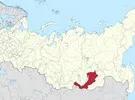 Buryatia: 10 ha under construction
Buryatia: 10 ha under construction
In August, construction of the first phase of a greenhouse complex of 10.5 ha began in Gusinoozyorsk. The greenhouses will produce over 9.7 thousand tons of vegetables per year. If the first phase of 10 ha is successful, the investor is planning to enlarge the acreage up to 60 ha.
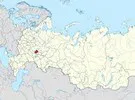 Chuvashia: 22 ha under construction
Chuvashia: 22 ha under construction
The first phase of the greenhouse complex with an acreage of 11 ha is planned to be launched in the Cheboksary area of Chuvashia at the end of 2018. The greenhouse complex, which will have a total of 22 ha for year-round vegetable growing, will be launched in phases: the first phase will be completed by the end of 2018, the second one by the fourth quarter of 2019.
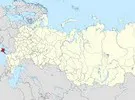 Crimea: 20 ha under construction
Crimea: 20 ha under construction
In the Crimea, which was annexed by Russia in 2014, construction started in January of the JSC Greenhouse complex Belogorskiy. The greenhouse will be growing tomatoes on an acreage of 20 ha, and is expected to be completed in November 2019.
 Dagestan: 21 ha under construction
Dagestan: 21 ha under construction
The second phase of the Yougagrholding greenhouse complex will be launched in 2018. Construction is carried out on a 53 ha plot in four phases. The greenhouse acreage will comprise 21.2 ha. The first phase of the biggest greenhouse in Dagestan will produce tomatoes to be sold in Russia.
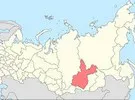 Irkutsk: 12.5 ha under construction
Irkutsk: 12.5 ha under construction
The press service of the Sayansk administration have reported plans to construct a greenhouse in the city with a projected capacity of 14-15 thousand tons of vegetables per year. The complex will provide 250 jobs.
 Kaliningrad: 9 ha in production
Kaliningrad: 9 ha in production
A new greenhouse complex has been launched in the Gusev area of the Kaliningrad region. The 9 hectare greenhouse is the biggest in the region, and will grow tomatoes and cucumbers. At the moment, only one greenhouse is fully operational. The enterprise behind the greenhouse is quite experienced in wholesale vegetables sales. The greenhouse complex in question is the third one in the company’s portfolio. Due to the gradually increasing production volume, the company soon expects to be able to meet the demand of Kaliningrad inhabitants with vegetables. To achieve that aim, a couple of similar complexes will have to be launched.
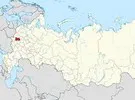 Kaluga: 112.5 ha under construction
Kaluga: 112.5 ha under construction
The biggest greenhouse complex in Russia, Agro-Invest, has recently launched the fourth phase of greenhouses in the Kaluga region and started construction of the fifth one. In 2018, the company will complete the construction of all greenhouses and will start producing fresh vegetables at full capacity. By the end of 2018, the overall acreage will comprise 112.5 ha. It is expected that when the enterprise starts working at full production capacity, the company share will reach 15% of the whole market of the Central Federal District.
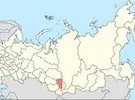 Kemerovo: 10 ha in production
Kemerovo: 10 ha in production
The Russian KDV Group has opened a contemporary greenhouse complex in the Yashkin district of the Kemerovo region (Russia). The greenhouse complex has been built from scratch, with a total acreage of 9.8 ha. It took two years and over 38.5 million euros to complete the project. The complex is powered by a CHP installation that provide the greenhouses with heat and CO2. At the moment, young plants have been planted (around 50 thousand) of tomatoes and cucumbers, each occupying two ha. Overall 4 ha are allocated for those two kinds of vegetables.
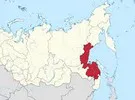 Khabarovsk: 10.3 ha under construction
Khabarovsk: 10.3 ha under construction
Russian-Japanese company JGC Evergreen will increase its volume of greenhouse produce up to 6 thousand tons per year. As a result of the introduction of the third phase of innovative greenhouses, the company will fully satisfy the demand of the Khabarovsk region for organic vegetables. Cucumbers, tomatoes, bell peppers, lettuce, radishes, greenery under the brand 'New Day' are sold in four branded shops of the agricultural company and the shops of several retail chains in Khabarovsk. The company is intending to start construction of the third phase of the greenhouses and expand their acreage to 10.3 ha.
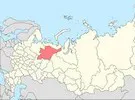 Komi: 11 ha under construction
Komi: 11 ha under construction
In December 2017, construction of an 11 hectare greenhouse complex, Sosnogorskiy, started in the Republic of Komi. Upon the completion of the project, the greenhouse will be able to provide the population of the republic and other regions with cucumbers and tomatoes at a volume of at least 9.6 thousand tons per year.
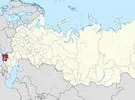 Krasnodar: 95 ha under construction
Krasnodar: 95 ha under construction
Krasnodar is looking to become to Russia what the Westland and Almería are to the Netherlands and Spain. This year, Certhon announced it would build a 24 hectare tomato greenhouse for Tander, which is to be completed by the end of the year. Meanwhile, in Kuban, an 11 hectare cucumber and tomato greenhouse is under construction. Another greenhouse in the region harvested 180,000 of vegetables this August. The latter complex is planning to expand with no less than 60 hectares for the production of tomatoes.
 Leningrad: 71 ha under construction
Leningrad: 71 ha under construction
A new greenhouse complex valued at 28.2 million euros will be built in the Volosovskiy district of the Leningrad region (Russia). The 11 ha greenhouse complex will grow eggplants, tomatoes, cucumbers and lettuce. A bigger greenhouse in the region is coming to Pikalyovo: 60 hectares of tomato greenhouses, to be built in three stages of 20 ha.
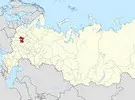 Moscow: 27 ha under construction, 43.5 ha under LED
Moscow: 27 ha under construction, 43.5 ha under LED
In April, the Minister of Agriculture and Food of the Moscow region, Andrey Razin, announced that the region would expand its greenhouse acreage. It appears he kept his word, because a month later, he could boast a harvest of more than 22,000 tons already, and in September, he announced a 77% increase of greenhouse vegetable crops in the region.
One of the biggest projects in the region is Agrokultura. After completion of 10 ha in 2015, 12 ha in 2016 and 21 ha in 2017, in January 2018 it was announced that Agrotech Didam would build another 27 ha high-tech greenhouse for cucumber and tomato cultivation. A month later, another Dutch supplier, Philips Lighting (now Signify), signed a contract to supply Agrokultura with LEDs for cucumber cultivation.
2018 has been a good year for Signify in the Moscow region. In June, they announced that Agro-Inwest would expand their already impressive tomato operation, from 25 to 68.5 hectares under LED.
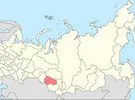 Novosibirsk
Novosibirsk
That the Russian horticulture industry doesn’t need to take all its cues from abroad, is shown in one example where enthusiasts from Novosibirsk developed a robot that can grow various crops.
 Oryol: 7.5 ha in production
Oryol: 7.5 ha in production
In June, it was announced a greenhouse operation near Oryol, one of the enterprises with an acreage of 7.5 ha, would soon start operating. The estimated productivity should reach 4 thousand tons of organic tomatoes, and the first crops are expected by the New Year.
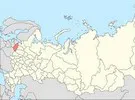 Pskov: 3 ha in production
Pskov: 3 ha in production
On August 25, the Nevelsky AgroSnab company opened a 3-hectare greenhouse. The greenhouse complex is aimed at growing tomatoes, greenery and lettuce in the winter and spring-autumn periods, using modern technologies provided by Italian company High Tech Equipment, with the help of employees from Krasnodar.
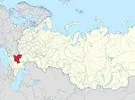 Rostov: 140 ha under construction
Rostov: 140 ha under construction
Another mega project: near Rostov, a 116 ha greenhouse for the cultivation of tomatoes, cucumbers and lettuce is under construction. Such a big project takes time, obviously – the first phase of the project is to be completed by 2021. Meanwhile, SovAgroTech are building a 24 ha greenhouse at a former mining territory.
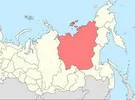 Sakha: 1.2 ha under construction
Sakha: 1.2 ha under construction
The Sayuri greenhouse complex near Yakutsk will see its second phase completed at the end of this year. The acreage of the new greenhouse will comprise 1.2 ha, 10 times more than the current experimental greenhouse, where they pick 150 kilos of cucumbers daily. The experimental complex, where vegetables are grown using Japanese technology, is reportedly the only greenhouse for year-round cultivation in a permafrost region.
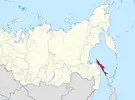 Sakhalin: 3 ha in production
Sakhalin: 3 ha in production
At the end of August, a new greenhouse complex was launched in the south of Sakhalin. It will provide the residents of the Nevel and Holmsk areas with tomatoes and greenery. The automated greenhouse complex of 3 ha with frost and wind resistant poly has been built using Italian technology. Local residents will be the first to taste the greenhouse produce. For that, a special trade pavilion will be built in the regional centre.
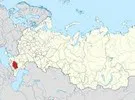 Stavropol: 10 ha in production, 6 ha under construction
Stavropol: 10 ha in production, 6 ha under construction
In the village of Solouno-Dmitrievsky, greenhouse complex Andropovskiy, with a production capacity of up to 6 thousand tons of cucumbers per year, was opened. The construction is an industrial greenhouse block with an overall acreage of over 10 ha. There's also a possibility to expand the project to 30 ha. Elsewhere in the region, 11 million euros was invested in 6 hectares of strawberry greenhouses, the first phase of which will be constructed in 2019. The investor supposes that the year-round greenhouse can become an object of educational tourism.
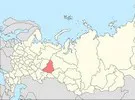 Sverdlovsk: 10 ha under construction
Sverdlovsk: 10 ha under construction
A vegetable greenhouse with Ultra Clima technology is under construction by UralInvestAgro in the Sverdlovsk region. The investor is planning to launch the greenhouses in 2019. The company plans to construct its own energy complex producing electrical and heat energy out of liquid gas fuel from production waste.
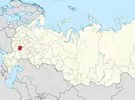 Tambov: 60 ha under construction
Tambov: 60 ha under construction
The construction of a major greenhouse complex has begun in the Michurin area of the Tambov region in Russia. Saint Petersburg company Tehnologii Teplichnogo Rosta, specializing in greenhouse vegetable production, is investing in the project. Construction will be carried out in three stages. During the first phase greenhouses of 30 ha will be built, the launch is planned for the summer of 2019. Another 29 ha of greenhouses will be launched in less than a year. The third phase with the same greenhouse acreage will start operating in 2021.
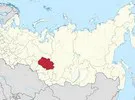 Tomsk: 1 ha under construction, 10 ha in production
Tomsk: 1 ha under construction, 10 ha in production
Despite being located in cold Siberia, the Tomsk region is somewhat of a hotbed for high-tech horticulture. For example, scientists at Tomsk Polytechnic University recently developed robo-bees: automatic pollinators to help grow strawberries and other crops in greenhouses.
And scientists at the university will soon get a new toy: a 1 hectare experimental greenhouse, which will be a testing zone for the creation of smart greenhouses for extremely cold conditions. Additionally, their research on smart LED lighting should help increase yields in the region’s greenhouses.
In the same region, VB Group just completed a 10-hectare greenhouse with an advanced climate system. “With this world-class greenhouse environment, we enhance the quality of our vegetables in our Siberian supermarkets big time. Because of our self-sufficiency, now we can shorten the period of transport with weeks, which improves the freshness,” the grower commented.
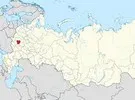 Tula: 80 ha under construction
Tula: 80 ha under construction
The foundation for another huge greenhouse was laid in March, in the Tula region. The first phase of the 80-hectare greenhouse will be completed in 2019, the second one in the fourth quarter of 2020, and the third phase in the fourth quarter of 2021.
 Ural: 25 ha under construction
Ural: 25 ha under construction
Self-sufficiency doesn’t just mean growing your own: for scientists of Ural State Agricultural University, it also means breeding your own varieties. "This year we begin tomato and cucumber hybrids seed production. Currently we have some expertise, we have created our own hybrid fund, several varieties have already been included in the state registrar. We hope to be able to provide all the regional greenhouses with cucumber and tomato seeds from the Ural selection in the near future", said the Dean of the Faculty of Agriculture and Land Utilization of the university, Mikhail Karpukhin.
One of those greenhouses that may in future benefit from locally-bred varieties is located at an agricultural park in Ust-Kataev. The greenhouse complex there will have an acreage of 25 ha. Vegetables will be grown year-round in accordance with the newest technologies.
 Volgograd
Volgograd
Moscow doesn’t have a monopoly on exponentially increasing vegetable production. A bit more to the south, in Volgograd, greenhouse complexes harvested about 5,100 tons of vegetables, which exceeds the results of the same period in 2017 by 232%. During the last 4 years over 38 high-tech greenhouses were built in the region, 15 of them in 2017. At the moment the overall greenhouse area amounts to 77 ha.
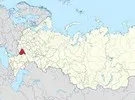 Voronezh: 32 ha in production
Voronezh: 32 ha in production
This summer, a 32 hectare greenhouse was opened in the Semiluki area in Voronezh. It is the only greenhouse complex with year-round cultivation in the region. The complex is located on the territory of a collective farm, Gremkolodezniy. It is aimed at growing tomatoes, cucumbers and lettuce on the basis of small volume technology.
 Yamalo-Nenets: 4.5 ha under construction
Yamalo-Nenets: 4.5 ha under construction
Another Siberian greenhouse has been announced in Noyabrsk, to be built by the Greenhouses of Yamal company. The goal is to build 4.5 ha of greenhouses, which will allow for a yield of 4.5 million kilos of produce per year. A similar project of a smaller scale will be launched in Salekhard.
